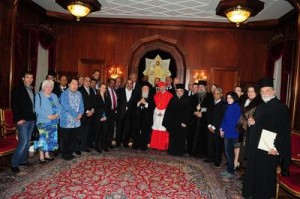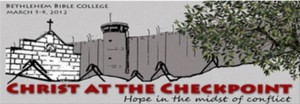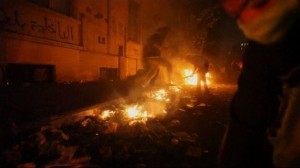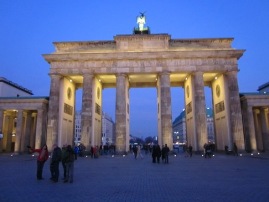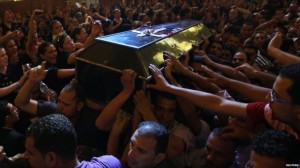In the mix of the muddle over the Palestinians’ UN statehood bid, something often gets lost. The US – and others – are adamant that the only way to Palestinian statehood is negotiations between Israel and the Palestinians, probably brokered by the US. But this is not negotiation between two equal parties. One is the occupier and one is the occupied. It is an illusion to think that they sit at the same table with equal power. One has the unquestioned support of much of the world’s power – and $3 billion a year from the US, which is supposed to be the honest broker. The other doesn’t, and has watched while illegal settlements and land reserved for their future growth and infrastructure have eaten up half of the land supposedly reserved for their future state.
Chris Cowan, a Luther seminarian, is an accompanier for the Ecumenical Accompaniment Programme for Palestine and Israel (EAPPI) living in the Southern Hebron Hills, protecting Palestinian school children and villagers from some of the violent settlers there. Read her reflections and follow her days at her blog http://christiarts.wordpress.com/. The Lutheran church sends a big percentage of the EAPPI-US program. .
But for now, read her observations about what it’s like to live under occupation. And think about what you would do if you lived under those circumstances. Perhaps you would do something as “unilateral” as appealing to the most multilateral peace organization in the world – the UN – for some protection, some hope and a fulfillment of the almost 60 UN resolutions supporting international law and a just peace.
Dear friends,
Today, I want to reflect a little bit on the experience of living in a militarized environment. It goes without saying that Jesus himself lived in such an environment, when 1st century Palestine was under Roman occupation. So it’s worth spending a few moments thinking about how it feels to experience this.
Of course, I can’t know, really know, how it feels because I have a 3 month visa and a foreign passport. I am clearly and visibly an international and am treated as such. This isn’t my country, no matter how much I love it, and I know every day that in a short time I will go back to the “land of the free”. As for being in “the home of the brave”, however, I am already there.
We were stopped by the Army yesterday as we drove to a village. And we were stopped by the Army today as we drove to a village. And also yesterday, in the Old City of Hebron, we walked past several soldiers, their guns pointed at us as we approached, because they were in the process of detaining a man in that place. We kept a wide berth between the guns and us.
When you have guns pointed in your direction, however casually, you are not free. You are not free, for instance, to openly take photographs, although you might try to take one on the sly.
When you have guns pointed in your direction, you have to do what you are told. Show your ID. Leave the road. Get out of the car. Go over there. Come with me. Wait here. Answer my questions. The conversations may even seem friendly but the guns send a different message.
When you have guns pointed at you, you feel tense, and it’s a little hard at that moment to interpret exactly what is happening.
For instance, it’s a confusing experience to be told by a soldier, while other soldiers train their rifles on you, to “be careful because it can be dangerous here”. It’s an interesting experience to be told by a soldier wearing a gun that you can’t go into a place of prayer because you are wearing a peace vest. Really? Really?
This is living under occupation.
This is not the land of the free, but I am already in the home of the brave. In such an environment, continuing to be civil, continuing to be hospitable, continuing to be hopeful, continuing to be loving, continuing to rebuild, this is courage.
Today I hope to use my freedoms and to act bravely.
Blessings on your journey,
Chris Cowan
